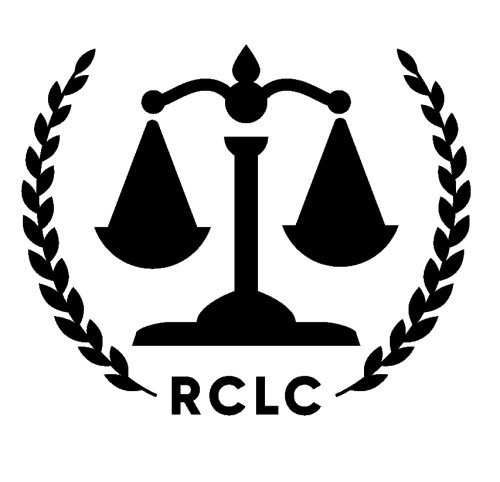Best Collaborative Law Lawyers in Zimbabwe
Share your needs with us, get contacted by law firms.
Free. Takes 2 min.
Free Guide to Hiring a Family Lawyer
Or refine your search by selecting a city:
List of the best lawyers in Zimbabwe
About Collaborative Law in Zimbabwe
Collaborative Law in Zimbabwe is a legal process where individuals involved in a dispute work together with their lawyers to reach a mutually beneficial resolution. It is an alternative to litigation and promotes cooperation and communication between parties.
Why You May Need a Lawyer
You may need a lawyer in Collaborative Law in Zimbabwe if you are involved in a family law matter such as divorce, child custody, or property division. A lawyer can help guide you through the process, protect your rights, and ensure that your interests are represented during negotiations.
Local Laws Overview
In Zimbabwe, Collaborative Law is governed by the Collaborative Law Practice Act. This act outlines the procedures and requirements for participating in collaborative negotiations. It is important to understand these local laws to ensure that your collaborative process is legally sound and enforceable.
Frequently Asked Questions
1. What is the difference between collaborative law and traditional litigation?
Collaborative law focuses on resolving disputes through cooperation and negotiation, while traditional litigation involves taking the matter to court for a judge to decide. Collaborative law aims to avoid the adversarial nature of litigation and promote a more amicable resolution.
2. How does collaborative law benefit me?
Collaborative law allows you to have more control over the outcome of your dispute, as you actively participate in negotiations and decisions. It also tends to be less time-consuming and costly than litigation.
3. Is collaborative law legally binding?
Yes, any agreements reached through collaborative law in Zimbabwe are legally binding once they are signed by all parties involved. This ensures that all parties are held accountable to the terms of the agreement.
4. Do I have to go to court if I choose collaborative law?
No, one of the main benefits of collaborative law is that it allows you to resolve your dispute outside of court. This can help save time, money, and maintain privacy.
5. Can I use collaborative law for any type of legal matter?
Collaborative law is commonly used in family law matters such as divorce and child custody, but it can also be used in other civil disputes. It is important to consult with a lawyer to determine if collaborative law is the best option for your specific situation.
6. How do I find a collaborative law lawyer in Zimbabwe?
You can contact the Zimbabwe Collaborative Law Association to find a qualified collaborative law lawyer in Zimbabwe. They can provide referrals and guidance on how to proceed with your collaborative law case.
7. What happens if we cannot reach an agreement through collaborative law?
If an agreement cannot be reached through collaborative law, the parties will need to pursue other dispute resolution methods such as mediation or litigation. It is important to have a backup plan in place in case negotiations break down.
8. How long does the collaborative law process typically take?
The length of the collaborative law process can vary depending on the complexity of the dispute and the willingness of all parties to cooperate. On average, it can take several months to reach a final agreement through collaborative law.
9. Can I still hire a lawyer if I choose collaborative law?
Yes, it is highly recommended to hire a lawyer who is experienced in collaborative law to represent your interests throughout the process. Your lawyer can provide legal advice, help negotiate on your behalf, and ensure that your rights are protected.
10. How much does collaborative law cost?
The cost of collaborative law will vary depending on the complexity of the case and the fees charged by your lawyer. Collaborative law is typically less expensive than litigation, as it tends to be more efficient and streamlined. It is important to discuss fees and payment options with your lawyer before starting the collaborative law process.
Additional Resources
If you need more information or assistance with collaborative law in Zimbabwe, you can contact the Zimbabwe Collaborative Law Association or the Law Society of Zimbabwe. These organizations can provide valuable resources and referrals to help you navigate the collaborative law process.
Next Steps
If you are considering collaborative law in Zimbabwe, it is important to consult with a qualified lawyer who specializes in this area of law. Your lawyer can guide you through the collaborative law process, help you understand your rights and obligations, and work towards a successful resolution of your dispute. Take the first step towards resolving your legal matter collaboratively by contacting a collaborative law lawyer today.
Lawzana helps you find the best lawyers and law firms in Zimbabwe through a curated and pre-screened list of qualified legal professionals. Our platform offers rankings and detailed profiles of attorneys and law firms, allowing you to compare based on practice areas, including Collaborative Law, experience, and client feedback.
Each profile includes a description of the firm's areas of practice, client reviews, team members and partners, year of establishment, spoken languages, office locations, contact information, social media presence, and any published articles or resources. Most firms on our platform speak English and are experienced in both local and international legal matters.
Get a quote from top-rated law firms in Zimbabwe — quickly, securely, and without unnecessary hassle.
Disclaimer:
The information provided on this page is for general informational purposes only and does not constitute legal advice. While we strive to ensure the accuracy and relevance of the content, legal information may change over time, and interpretations of the law can vary. You should always consult with a qualified legal professional for advice specific to your situation.
We disclaim all liability for actions taken or not taken based on the content of this page. If you believe any information is incorrect or outdated, please contact us, and we will review and update it where appropriate.
Browse collaborative law law firms by city in Zimbabwe
Refine your search by selecting a city.















